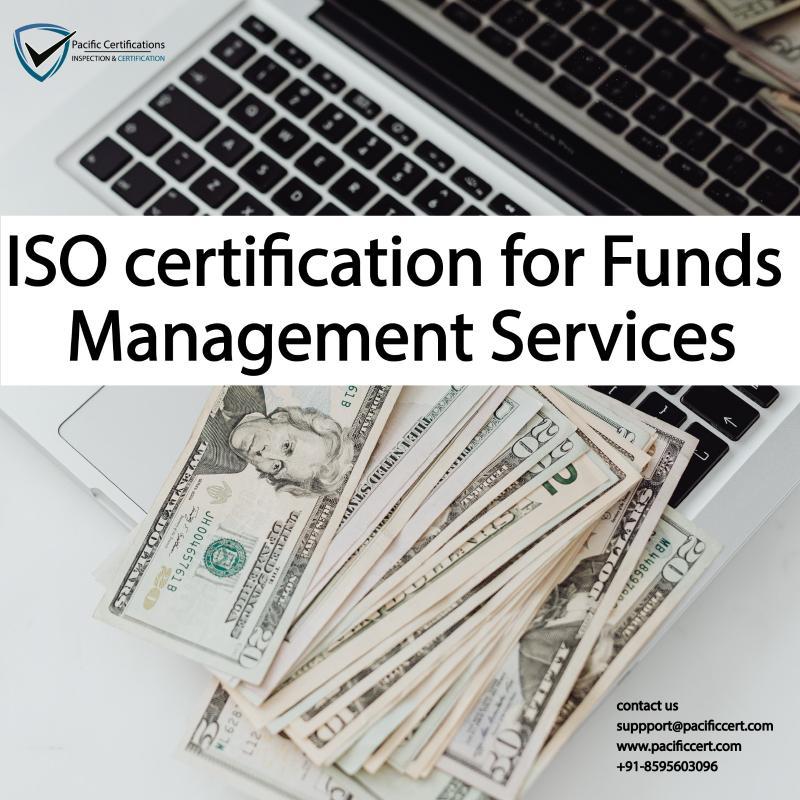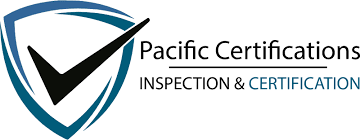ISO Certifications for Funds Management Services, Requirements and Benefits

Introduction
Funds management service providers operate in a fiduciary-driven and regulation-intensive environment where investment governance, data integrity, risk management, transparency, and operational resilience directly affect investor confidence and long-term performance. These services include portfolio management, fund administration oversight, valuation coordination, investor reporting, compliance monitoring, and risk analytics across mutual funds, private funds, pension funds, hedge funds, and alternative investment vehicles.
With increasing regulatory scrutiny, heightened expectations from institutional investors, rapid digitization of investment platforms, and growing cyber and data-privacy risks, funds management firms are under constant pressure to demonstrate disciplined governance. ISO certifications have therefore become an essential framework for funds management services to formalize operational controls, protect sensitive investor data, ensure continuity of critical services, and strengthen credibility with regulators, custodians, trustees, and investors.
In funds management, trust is preserved through systems long after performance is reported.
Quick Summary
ISO certifications provide funds management service providers with internationally recognized frameworks to manage service quality through ISO 9001, information security through ISO/IEC 27001, privacy protection through ISO/IEC 27701, business continuity through ISO 22301, IT service reliability through ISO/IEC 20000-1, enterprise risk governance through ISO 31000, and occupational health and safety through ISO 45001. These certifications strengthen governance discipline, data protection, regulatory alignment, and operational resilience.
For more information on how we can assist your health insurance business to become ISO certified, contact us at [email protected].
Applicable ISO Standards for Funds Management Services
Below are the most relevant ISO standards applicable to asset managers, investment management firms, fund administrators, and portfolio advisory services:
ISO 9001: Quality Management Systems
ISO 9001 supports consistency across funds management activities such as portfolio execution, valuation coordination, NAV oversight, investor reporting, compliance checks, and service reviews through standardized procedures and continual improvement.
ISO/IEC 27001: Information Security Management Systems
Funds managers handle highly sensitive investor, transaction, valuation, and strategy data. ISO/IEC 27001 provides a structured framework to manage cybersecurity risks and protect confidentiality, integrity, and availability of information assets.
ISO/IEC 27701:2019 – Privacy Information Management Systems
ISO/IEC 27701 strengthens governance over personal data processing related to investors, beneficial owners, and employees, supporting compliance with global privacy and data-protection regulations.
ISO 22301:2019 – Business Continuity Management Systems
Fund operations such as trading oversight, valuation, reporting, and investor communications must continue during system failures or market disruptions. ISO 22301 ensures resilience and recovery capability.
ISO/IEC 20000-1:2018 – IT Service Management Systems
Portfolio management systems, reporting platforms, analytics tools, and integrations rely on reliable IT services. ISO/IEC 20000-1 ensures controlled change management, incident response, and system availability.
ISO 31000 - Risk Management:
This standard provides guidelines on managing risk faced by organizations. Implementing ISO 31000 can help health insurance companies with risk assessment and risk management, which is a core part of their business.
Click here to find out more applicable standards to your industry
What are the Requirements of ISO Certifications for Funds Management Services?
Funds management service providers seeking ISO certification must establish and maintain documented policies, procedures, and records aligned with each applicable ISO standard. Key requirements include the following:
ISO 9001:2015 – Quality Management System Requirements
Define standardized processes for portfolio oversight, reporting, and investor servicing
Establish quality objectives linked to accuracy, timeliness, and compliance
Implement document and record control for investment reports and disclosures
Monitor investor feedback, service deviations, and corrective actions
Apply continual improvement across funds management operations
ISO/IEC 27001:2022 – Information Security Management System Requirements
Identify and classify investor, portfolio, and transaction data assets
Conduct information security risk assessments and treatment planning
Implement access controls, encryption, and secure authentication mechanisms
Establish incident detection, reporting, and response procedures
Monitor and review ISMS effectiveness
ISO/IEC 27701:2019 – Privacy Information Management System Requirements
Define data controller and processor responsibilities
Establish lawful basis for processing investor and personal data
Implement consent, retention, and data minimization controls
Manage data subject access, correction, and deletion requests
Maintain privacy risk assessments and breach response plans
ISO 22301:2019 – Business Continuity Management System Requirements
Identify critical fund operations and reporting dependencies
Conduct business impact analysis for operational disruptions
Develop continuity and disaster recovery plans
Test continuity arrangements periodically
Train staff on incident response and service restoration
ISO/IEC 20000-1:2018 – IT Service Management System Requirements
Define service levels for portfolio and reporting systems
Control changes to investment platforms and integrations
Manage incidents, outages, and service disruptions
Monitor system availability, capacity, and performance
Drive continual improvement of IT service delivery
Tip:Start by mapping one complete fund lifecycle—from mandate onboarding and portfolio execution to valuation, reporting, investor communications, and regulatory filings—against ISO requirements to identify governance and data-control gaps early.
For further information on how we can assist your funds management services business with ISO certifications, contact us at [email protected].
What are the Benefits of ISO Certifications for Funds Management Services?
ISO certifications are suitable for asset managers, fund managers, portfolio advisory firms, and fund administration service providers. Key benefits include:
Improved consistency in portfolio oversight and reporting, reducing valuation and disclosure errors across funds.
Stronger protection of investor, transaction, and strategy data, minimizing exposure to cyber and confidentiality risks.
Higher confidence from institutional investors, trustees, and custodians, supporting mandate retention and new allocations.
Better governance over outsourced and third-party service providers, including administrators, custodians, and IT vendors.
Improved operational resilience during market volatility or system disruptions, ensuring continuity of reporting and investor services.
Enhanced risk management across investment, operational, and compliance functions, supporting fiduciary responsibilities.
Greater regulatory readiness and audit transparency, simplifying supervisory reviews and due-diligence processes.
More structured incident, issue, and complaint handling, improving investor communication and response discipline.
Clear accountability and role definition across investment and support teams, strengthening internal controls.
Long-term credibility and scalability, enabling funds management firms to grow across jurisdictions and asset classes.
The global funds management industry continues to expand as institutional investment, retirement assets, and alternative investment products grow. Industry analysis indicates that global assets under management are projected to exceed USD 150 trillion within a few years, significantly increasing data volumes, reporting complexity, and governance expectations for funds management service providers.
At the same time, regulators and institutional investors are placing stronger emphasis on operational resilience, data protection, and governance frameworks within asset management. Statistics show that funds managers operating under certified quality, information security, and continuity management frameworks experience fewer reporting errors, faster recovery from system incidents, and stronger investor confidence.
How Pacific Certifications Can Help?
Pacific Certifications, accredited by ABIS, acts as an independent certification body for funds management services by conducting impartial audits against applicable ISO standards. Our role is to objectively assess whether documented management systems and operational practices conform to international ISO requirements, based strictly on verifiable evidence and records.
We support funds management service providers through:
Independent certification audits conducted in accordance with ISO/IEC 17021
Practical assessment of real portfolio oversight, data controls, and governance practices
Clear audit reporting reflecting conformity status and certification decisions
Internationally recognized ISO certification upon successful compliance
Ongoing surveillance and recertification audits
Contact Us
If you need support with ISO certification for your funds management services business, contact us at [email protected] or +91-8595603096.
Author: Ashish
Read More at: Blogs by Pacific Certifications

